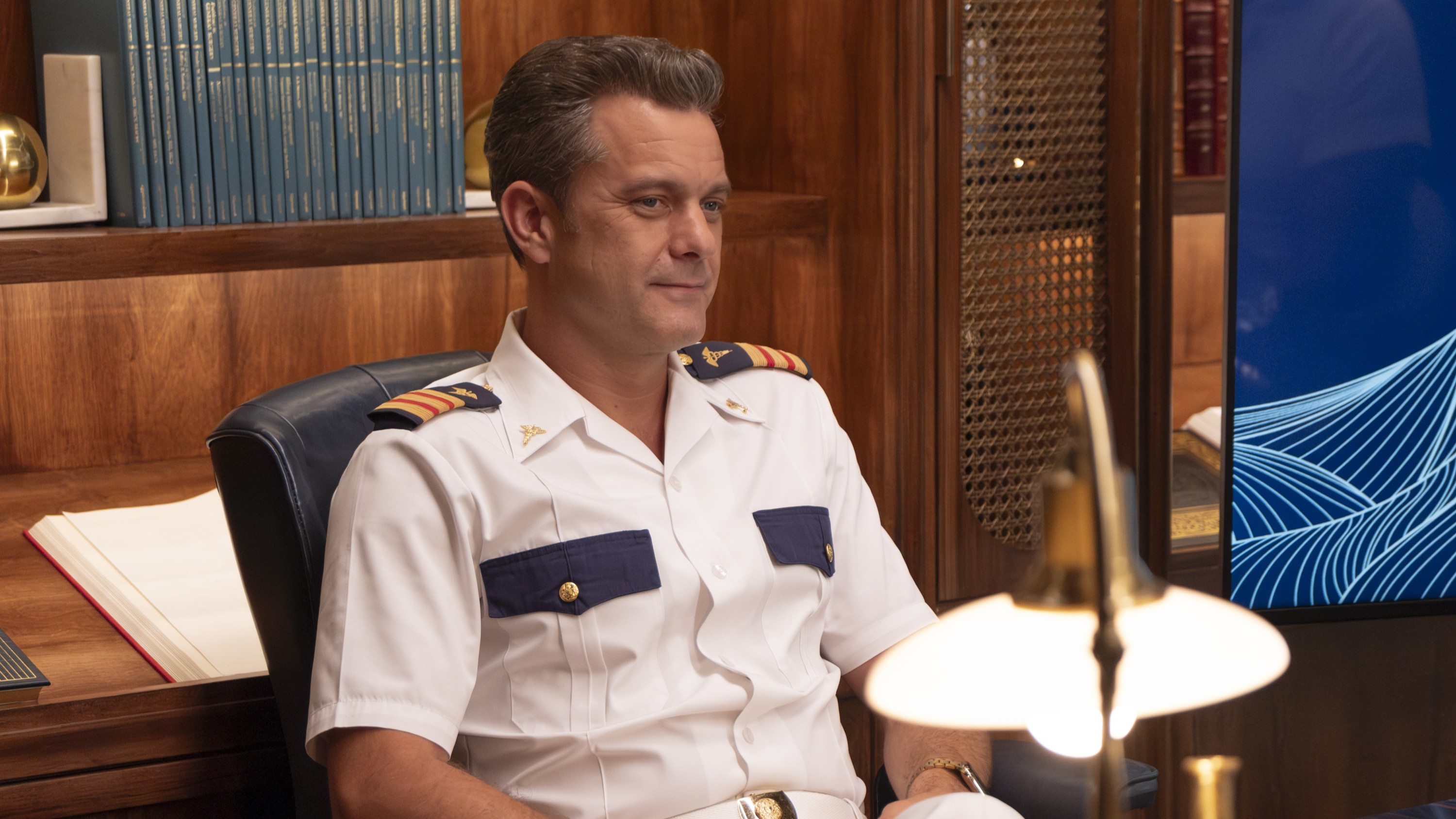What to Watch Verdict
Producer-turned-director Randall Emmett cannot rouse Bruce Willis to try, and the rest of the production ultimately feels like it's sleepwalking alongside him.
Pros
- +
💥 Megan Fox and Emile Hirsch give their performances more oomph than the material deserves, if it doesn't especially benefit the film.
Cons
- -
💥 Alan Horsnail's script unfolds like a laundry list of serial killer tropes, waiting to be checked off one at a time.
- -
💥 Fox's character gets repeatedly undermined either by her male counterparts or the script itself.
- -
* Willis is not trying enough even for his performance to earn the description "bad."
A very real conversation is happening in the entertainment industry right now about whether or not it is ethical for filmmakers to use deceased performers — to manufacture performances or deliver line readings — via artificial intelligence. One has to imagine that Bruce Willis emphatically supports the “pro” argument, because the number of times he’s made an effort on camera in the last ten or more years can be counted on one hand, and you’d think he would much rather a computer-generated version of his likeness deliver the somnambulant performances he’s given in too many terrible films to count while he collects their very real paychecks. There certainly exists no evidence that he acts for any reason other than to get paid, at least at this point in his career.
Midnight in the Switchgrass is the latest of these projects, where he plays a grizzled FBI agent coaching his obsessive partner through the waning days of a protracted investigation while preparing for retirement. An actor willing to try, even a little, could turn a character like this into a latter-day Detective Somerset, handing off the crime-fighting reins to his younger counterparts, both metaphorically and within the story. But even if producer-turned-director Randall Emmett (The Irishman) can lead Willis to money for a role like this, he cannot make him act; and unfortunately screenwriter Alan Horsnail’s serial killer retread doesn’t contain enough intriguing ideas to counterbalance Willis’ onscreen lethargy, much less captivate a cast toplined by Megan Fox, Emile Hirsch and Lukas Haas.
Set for some reason in 2004 (seemingly because this is based on the real-life pursuit of the “Truck Stop Killer,” but more likely because it eliminates cell phones from becoming an intrusion to the plot), the film stars Willis and Fox as Karl Helter and Rebecca Lombardi, FBI agents who set up sex traffickers at fleabag hotels in Pensacola, FL with her as bait and him as cantankerous lookout. One night while fending off a tattooed pimp (Machine Gun Kelly in an uncredited cameo) who unwittingly interrupted the duo’s sting, they completely miss the abduction of a teenage girl named Tracey (Caitlin Carmichael) at neighboring gas station by a truck driver named Peter (Haas). While Helter and Lombardi reckon with orders from their superiors to abandon the case, Florida police officer Byron Crawford (Hirsch) picks up a missing person report for Tracey, linking it to a string of similar-looking murders that took place in the area despite his own boss’ insistence that it’s not worth investigating.
Helter and Lombardi part ways acrimoniously, but Lombardi continues wooing Peter as a suspect, and enlists Crawford as a partner. They eventually hatch a plan to lure him to a biker bar where they will apprehend him, but Peter unexpectedly gains the upper hand, kidnapping Lombardi while Crawford searches frantically for evidence of either of them. While Peter brings Lombardi back to his stronghold with plans to kill her after he finishes with Tracey, Crawford flies into action, violating his superior’s orders to investigate the leads he was supposed to ignore, hoping to rescue an endangered girl, save a fellow officer’s life, and bring a killer to overdue justice.
Horsnail’s script isn’t terrible, and outside of Willis’, the performances are pretty good. But there’s nothing here that hasn’t been explored in a dozen other movies about serial killers, from its detectives navigating varying degrees of naivete or cynicism, to a bureaucracy that either ignores or complicates the investigative process, and inevitably, a killer who must be outsmarted while a clock, figurative or literal, ticks down to what could be the final moments of a victim’s life. Worse, the police men and women chasing this mysterious perpetrator make some truly boneheaded choices — Helter doesn’t give a second thought to a clearly fucked-up girl wandering around a truck stop near a hotel where his partner set a meeting with a suspected serial killer, and Lombardi and Crawford entirely fail to come up with a contingency plan if “meeting the killer in a crowded bar” goes wrong. But there’s also a weird persistence to the way that Lombardi gets blamed, blames herself, or otherwise falls prey to violent men until the film’s very last scenes which undercuts the character’s cartoon feminist toughness.
Emmett further makes some baffling choices towards the end that make the audience wonder who they’re supposed to be rooting for, including a montage of Peter’s victims that feels like one of those faux-romantic, When Harry Met Sally reminders of all of the things that truly matter, oddly set to a bland, meaningless country rock song. But his determination to make this a serviceable mid-level thriller is ultimately thwarted by Willis — less because of the actor’s lackluster performance than the dubious pedigree he’s cultivated by making so many terrible movies that, to viewers, fall into this forgettable middle distance. No one has done more damage to Bruce Willis’ brand more than Bruce Willis, and that damage is pre-emptively poisoning productions that, well, if they’re not Oscar contenders, then at least deserve to be evaluated on their own merits.
Of course, Hirsch’s and Fox’s reputations hardly bolster the film’s dramatic credibility, even if both are fairly good actors who consistently seek their characters’ complexities, whether or not they always find them. But Emmett’s directorial debut sadly adds up more or less exactly to the anemic total of its star wattage, which is less than it needs to draw audiences’ attention away from the films on streaming services (much less in theaters) with which it competes. It’s exactly the kind of mediocre, derivative spectacle that reminds you how depressing it can be to watch an actor that you once admired sleepwalk through what’s left of their career because there’s no reason other than money for them to make an effort. In other words, Midnight in the Switchgrass is as far away from something like Seven as the Willis who acts in this film is from Die Hard, but the difference is that in the distance between the first two, there’s a chance you’ve forgotten what you’re missing — and in the second, only a sad reminder of what seems gone forever.
Todd Gilchrist is a Los Angeles-based film critic and entertainment journalist with more than 20 years’ experience for dozens of print and online outlets, including Variety, The Hollywood Reporter, Entertainment Weekly and Fangoria. An obsessive soundtrack collector, sneaker aficionado and member of the Los Angeles Film Critics Association, Todd currently lives in Silverlake, California with his amazing wife Julie, two cats Beatrix and Biscuit, and several thousand books, vinyl records and Blu-rays.












